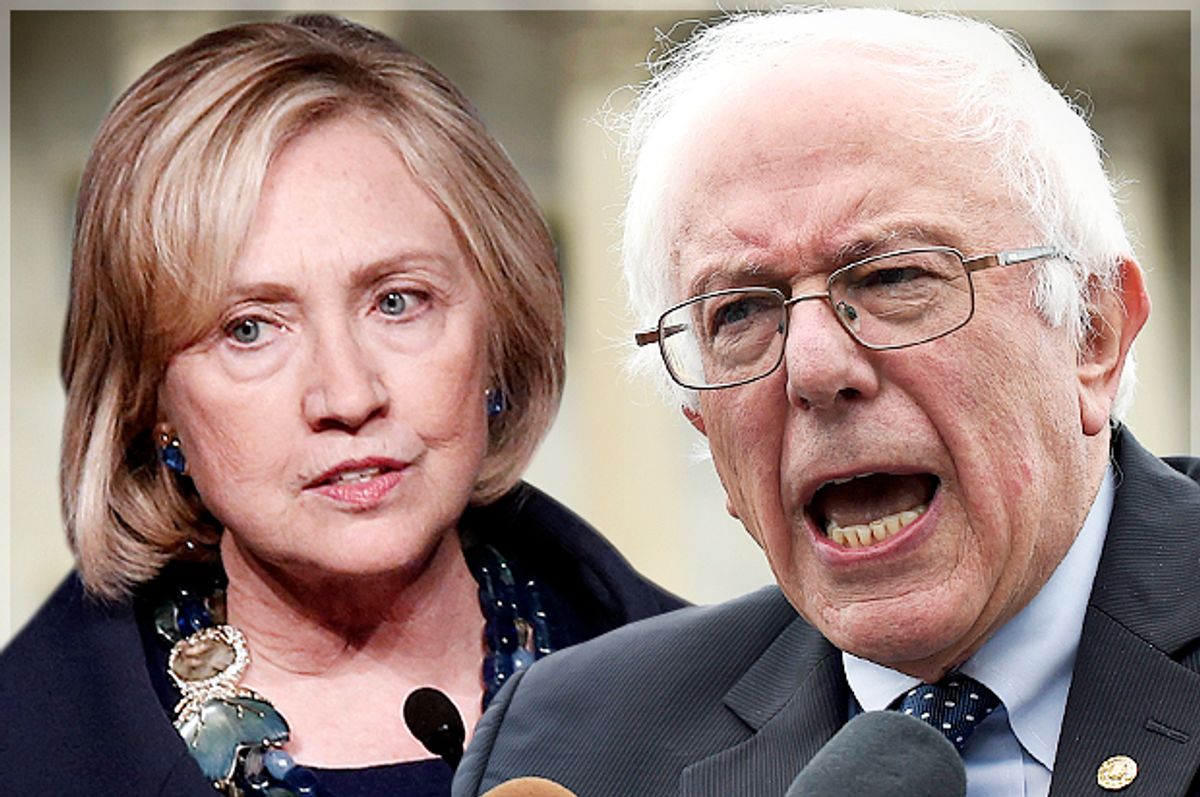Two weeks ago I wrote an article about Al Gore, offering 10 reasons why he should run for president. But let’s be clear: Al Gore isn’t running for president. There are two candidates that matter in the Democratic race right now: Hillary Clinton and Bernie Sanders. Clinton, despite her vulnerabilities, remains the clear frontrunner. I’m not sure that’s a good thing, however -- for Democrats or the country.
The single most important issue in this campaign, the only real political panacea, is campaign finance reform. Nearly every obstacle to progress is traceable to the corruption of our political process. That corruption was institutionalized as a result of the Supreme Court’s Citizens United decision, which prohibited regulation of independent political expenditures by nonprofit corporations.
The very notion that political influence should scale with wealth is itself anti-democratic. We ought to expect, on some level, that the wealthy will have disproportionate power in the political process, but not to the extent that they do today. It’s true that both Clinton and Sanders have been openly critical of Citizens United. But there’s an obvious credibility gap between them. On a recent “Face the Nation” interview, for instance, Sanders put it plainly:
“Look, let me be very clear. This disastrous Citizens United Supreme Court decision is undermining American democracy. And when you have a family like the Koch brothers, second wealthiest family in America, going to be spending more money in this campaign than either the Democratic or Republican parties, I worry about us moving toward oligarchy, where our political system is controlled by the rich and the powerful.”
Clinton, to her credit, struck a similar note on a recent visit to Iowa: “We need to fix our dysfunctional political system, and get unaccountable money out of it once and for all, even if it takes a constitutional amendment, and we need to protect our country from the threats that we see and the ones that are on the horizon.”
Sanders clearly speaks in more urgent terms, but that’s a trivial difference. What’s not trivial, however, is their divergent backgrounds and campaign financing schemes. Sanders' campaign is exclusively voter-financed. “I am raising money from small individual contributions,” he told CBS’s John Dickerson. “I don't have a super PAC. I don't want money from the billionaires. And that's the way we're going to run our campaign.” Sanders' reliance on individual contributions for campaign funding means he’s beholden to thousands of voters, to the people, not to a handful of corporate backers. In short, it means he’s an authentic populist.
Let’s face it: Clinton has her hands out. She’s willing to take money from anyone, be it her super PAC or a Wall Street bank or Saudi Arabia or Donald Trump. And while she’s now making the right noises about political corruption, she’s come to that epiphany rather late. It wasn’t until last year that Clinton hinted she’d “consider supporting an amendment” to overturn Citizen United. Months before that, on the floor of the United States Senate, Bernie Sanders declared categorically that Citizens United was creating an “oligarchic form of society.” This isn’t a talking point for Sanders, in other words -- it’s at the center of his campaign.
If Clinton appears to be shape-shifting on the campaign finance front, it’s likely due to pressure from Sanders. But rhetoric aside, the fact remains: Clinton is taking money from billionaires -- the people benefiting from Citizens United - while Sanders is going straight to the voters. That doesn’t mean Clinton won’t deliver on her promises, but it does mean we ought to be suspicious. And that suspicion, at least from progressives, extends well beyond campaign finance.
On war and Wall Street and trade and a number of other issues, Sanders is simply more credible than Clinton. His track record is more consistent, more resolute. I’m not anti-Clinton so much as pro-Sanders. Clinton, without question, is qualified -- arguably as qualified as any candidate in modern history. I’ve no doubt that she’d be a competent president. But she is the establishment -- there should be no confusion about that.
Bernie Sanders, whatever you think of him, represents a genuine paradigm shift. Not even Obama’s candidacy, in terms of policy, represented such a radical shift. I’m not yet convinced Sanders can win this thing, but I’m gradually open to the possibility. Sanders has tapped into something real in American politics, to a gnawing anxiety about the anti-democratic drift of the country.
Is he a savior? No. But he’s changing the conversation. And, if nothing else, he’s forcing Clinton to take a firmer position on campaign finance - which she’ll have to maintain in a general election if she wants to keep the base. Whatever becomes of his campaign, then, he’s already made a difference.

Shares